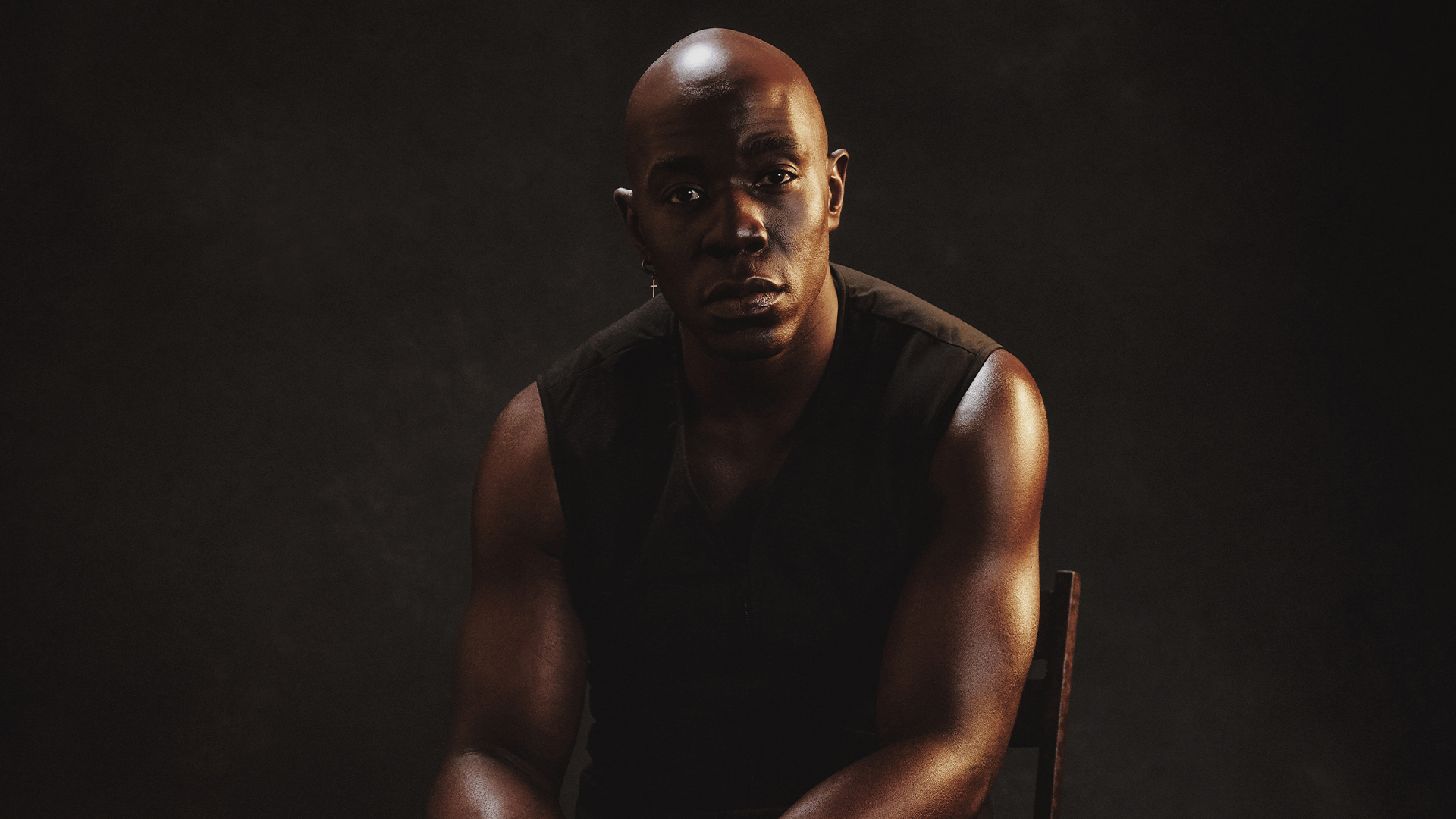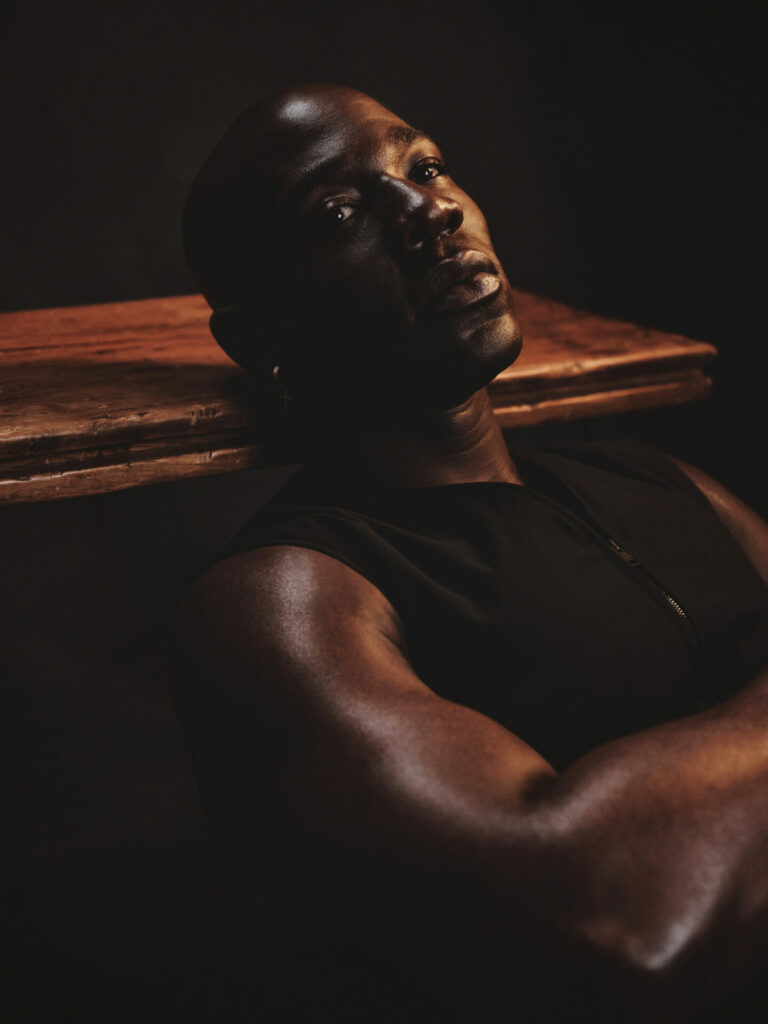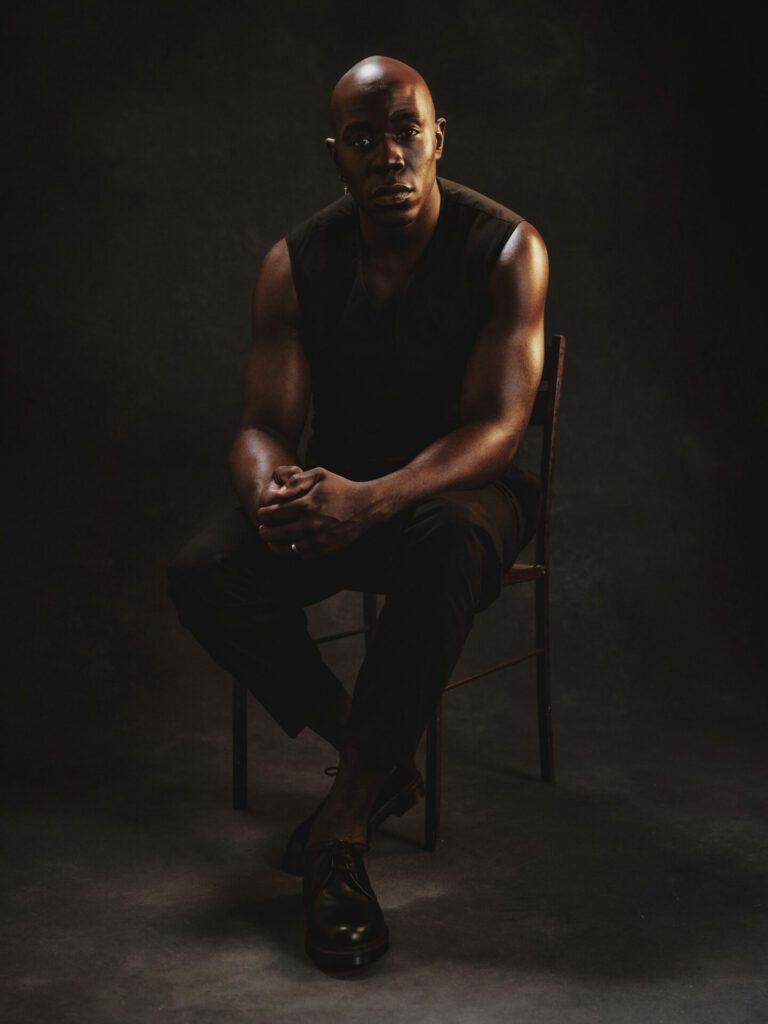Eric’s McKinley Belcher III on subverting ‘bury your gays’ trope with an empowering story
Exclusive: "There is a degree of loss and mourning, and I think there’s a part of losing the person that you love that acts as a kind of fuel for Ledroit," the actor says of his role in Eric

McKinley Belcher III was working as a paralegal for a law firm when he had an epiphany. “A lot of the attorneys I was working for were very wealthy, but very unhappy,” he says. Sitting at his desk, having interned at a law firm while studying for a degree in communication studies and political science at Belmont University, Tennessee, and having taken his Law School Admission Test (LSAT) after that, it hit him: “This is not it.”
Had a friend of Belcher’s at Belmont not roped him into acting in a play (Raisin in the Sun) and its director not suggested he go to New York University (NYU) for post-graduate studies because they thought Belcher could be an actor, he could have been at a loss as to what to do next. Thankfully, both those things happened, and the new path he should take came to Belcher in a bright, shining moment of clarity. “At my desk, I started filling out the application. A couple of weeks later, I auditioned. Got in there [NYU], and then also auditioned with the people who were auditioning next door for USC School of Dramatic Arts in LA, where I ended up going.”
That single experience of live theatre (“it’s weird and beautiful and magic”) proved electric for young Belcher and set him on a trajectory that has seen him star in multiple TV series, including Ozark and One Piece. He was also part of the history-making first all-Black cast of Arthur Miller’s Death of a Salesman on Broadway. All of this is how he comes to be on a Zoom call with Attitude on a Tuesday afternoon where we’re discussing his upcoming Netflix limited series, Eric.
Set in New York City in the 80s, Eric follows Vincent (Benedict Cumberbatch), the creator of the popular children’s television show Good Day Sunshine, after his son, Edgar (Ivan Howe) goes missing. Belcher stars as Detective Michael Ledroit, who has recently transferred to the NYPD’s Missing Persons unit from the Vice team. Little is shown of Ledroit during the series’ first episode other than him beginning the investigation into Edgar’s disappearance.
We do catch him briefly coming home to his partner, William, which reveals that Ledroit is queer. The two share a tender and loving moment before we return to police business. Ledroit appears to live in a very compartmentalised world, setting a clear boundary between work and personal life by removing all his police gear when he returns home. At work, he’s stoic, serious, and measured; at home, he’s warm, smiling, and comfortable.

Belcher is able to shed light on how central Ledroit’s queerness will be to his story. “In a very beautiful way, it is incredibly central,” he says. “Not only does his queerness plug him into understanding New York City in a very different way than a regular cop would, but in a lot of the young men who have gone missing, he sees a young version of himself, and I think there’s this question that he’s asking himself of how do young men fall through the cracks? It’s when someone who could or should do something chooses not to. In that first episode, and throughout the series, he’s not only finding his why, but stepping up to the plate of being the person who’s going to do something.
“It gives him a very specific understanding of the club life and a lot of the young men who feel like that’s the only place they can be themselves. He has very specific relationships with some of the people that will be investigated. But Michael’s queerness plays into his understanding and his level of compassion for the people he’s looking for.”
Another element to the backdrop of Eric is the AIDS crisis. It’s easy to jump straight to the classic ‘bury your gays’ trope when you know that. Belcher reveals it was a topic of conversation among the show’s cast and creators. “I like to think that we’ve avoided that trope in many ways, while also telling the truth of what someone who is living in the middle of that crisis would be experiencing. There is a degree of loss and mourning. And I think there’s a part of losing the person you love that acts as a fuel for Ledroit. I think it gives him an interesting route to finding himself.”
In recent years, we’ve seen the trope begin to be subverted, perhaps most successfully in HBO’s The Last of Us, which gave the audience time to get to know its queer characters and to give those characters meaningful stories before we lost them. They weren’t simply used as cannon fodder. Belcher assures me the same is true of Eric. “By the time we get to the end of this thing, in many ways, for Ledroit, this is a story of empowerment, of finding self, and learning to stand up on his own two feet in his queerness, in his man-ness, and his ability to be the change that he wants to see in the world.”
From there we take a somewhat unoriginal turn onto the topic of representation in Hollywood. It’s an ongoing discussion that was initially conducted in very stark terms. It’s reached a point, it would seem, where the nuances are beginning to be discussed more and more. The consensus appears to be that no one should be excluded from being considered for any role. However, that must work in every way. Queer stories, as with any minority or underrepresented group, need authentic involvement, be that in front or behind the camera, or both.
On this point, Belcher says he’s seen friends of his step into roles where “they happen to not be that thing”. The experiences, though, change them. “Stepping into things that we are not or that we are maybe next to is a way of expanding ourselves. I think everyone should have the opportunity to do that,” he says wisely, in calm and relaxing tones. And after years of queer actors being passed over for queer roles which straight actors have won awards and acclaim for, Belcher is optimistic that things are changing for the better. “But in the process of building that, it’s important to advocate for people who have been shoved to the side. As we get more queer stories, it’s important for queer people to be somehow involved. But I don’t like the idea of gatekeeping and saying, ‘Only queer people should be telling these stories.’”

Belcher also celebrates the variety of queer stories and characters coming through. Sometimes the queerness is the focus. Sometimes it’s just a part of a character’s identity, as it is in real life. “We need all these things,” Belcher says. “It excites me that I feel like we’re getting that upward direction. I also feel like I’m seeing queer people of all gender expressions and expressions of sexuality from writers to directors, actors, showrunners, and editors. That change is happening in real time. And I love seeing the diversity of the voices, and the fact that there is queer representation.”
Looking forwards, we touch on Belcher’s dream roles. Among them are Shakespeare classics such as Hamlet, as well as deep dives like Aaron from Titus Andronicus. He’s also a big Tennessee Williams fan, as well as of August Wilson. “I play the sax,” he reveals towards the end of our chat. “So, I would love to play the likes of John Coltrane or Charlie ‘Bird’ Parker. I would love to play Jack Johnson, who was a great heavyweight boxer in the 1900s. Any of those are exciting for me to do.
“A thing I’m interested in mining for is what is this person wrestling with? What are they hiding? What are they presenting to the world? And what are they not presenting to the world? And I think that’s just the stuff that makes people interesting. It’s probably true for most people that there’s something behind the curtain that makes you tick, or that makes you interesting. Playing with [that] makes us seem more interesting. And more human in a way.”
Eric is streaming now.
